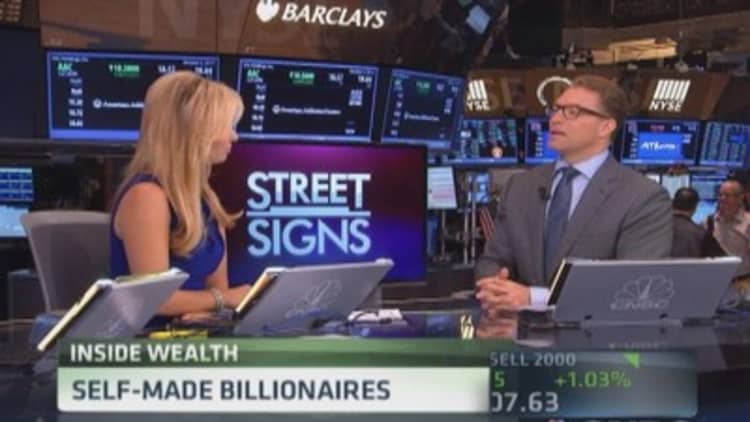Affluent shoppers have been the fuel for the consumer recovery since 2009. But now, they may be putting away their big wallets.
A new study from Bain & Co. shows that growth in global luxury sales this year will be the slowest since 2009, when spending started to rebound after the financial crisis. The report, by Bain luxury expert Claudia D'Arpizio, said sales will grow 2 percent in current exchange rates, to €223 billion or around $282 billion.
The report said the crisis in Ukraine, protests in Hong Kong, a slowdown in Japan and Europe, and weak sales in China are all weighing on luxury sales. In China, sales are expected to fall for the first time, due to a crackdown on corruption that's stemming sales of everything from watches and wine to handbags and supercars.
Read MoreHow the super rich spend their money
"Slower, but steady, that is the new normal for the global luxury market in 2014," D'Arpizio said in the report.
The weak outlook for the sector comes amid poor earning forecasts from several high-end retailers and brands.
Burberry Group, the British luxe company famed for its expensive trench coats, said it expected declining revenue and "slight downward pressure" on profit margins in the second half of the year, while luxury handbag maker Mulberry trimmed its forecast for fiscal 2015 after sales for the six months ended Sept. 30 fell 17 percent.
at LVMH, whose brands include Louis Vuitton, Hennessy cognac and Dom Perignon champagne. However, the company declined to provide a forecast for the year, citing an uncertain economic and financial environment.
Last month, Prada said it expected continued weakness after it posted a 21 percent drop in net income in the first six months of 2014.
Read MoreHow much do the ultra-rich give to charity?
The fate of the luxury consumer has outsized implications for the U.S. and global economy. Affluent and wealthy consumers have been doing the most spending since 2009, as their confidence rebounded with rising stock markets and asset prices. Economists estimate that the top 20 percent of consumers have accounted for more than half of consumer outlays in the recovery.
Yet now, volatile markets, growing unrest around the world and economic declines in Europe and emerging markets are making big spenders nervous. Luxury spending in Russia is expected to drop 18 percent this year, while spending in China will drop 2 percent.

Granted, D'Arpizio said there are many bright spots in the market. Luxury car sales are expected to surge 10 percent this year, as supercars and luxe SUVs are seen as a "symbol of status and social enabler." Hotel revenue will be up 9 percent, with the continued growth in high-end tourism, and sales of high-end food and wine are also on the rise.
For now, the U.S. luxury consumer is holding up. Bain expects U.S. luxury sales to grow 5 percent to $65 billion.
Read MoreWe're richer but watch out for unrest
American spending is being "pushed by a rediscovered interest for luxury products especially in younger generations," the report said. With middle-income and lower-income consumers struggling, the high-end consumer has propped up the economy.
In its report, Bain said the U.S. "luxury superhero came to rescue an increasingly challenging market."
It remains to be seen, of course, whether the spending "heroes" will be able to keep up their strength.


